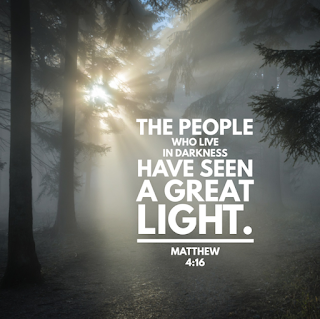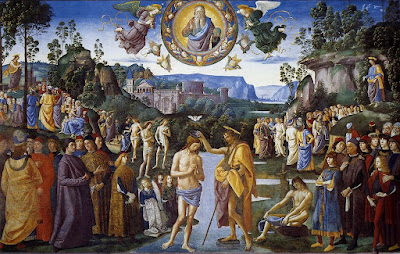“Pastor, I’ve tried the Beatitudes and they don’t work. I have really hungered and thirsted for righteousness, and I don’t feel satisfied. I have mourned and I don’t feel comforted. I have tried to be pure in heart but I just can’t get it right. What can I do?”
To many, the word “Beatitude” sounds like the two English words “be” and “attitude.” To others, the Beatitudes sound more like moral statements, or platitudes.
But there is no doubt that the Sermon on the Mount is the most famous sermon Jesus ever preached. But there is also no doubt that the Beatitudes are also the most misunderstood.
So, what is the deal with the Beatitudes? Is Jesus to be seen as a new law giver, a second but greater Moses? Are these attitudes that I must be in order to get these blessings from God? Are the Beatitudes a moral code that I must live by? Are the Beatitudes a prescription for making oneself righteous and so earn a place in the kingdom of God? What have you heard? What have you thought?
In recent years, the Beatitudes have been used as a sort of proof text for the social gospel and social justice. Is that the point of the Beatitudes? Jesus says, “Blessed are the poor,” so isn’t this Jesus telling us to abolish poverty from the earth?
Well, before we answer any of these questions, we must first consider who Jesus is speaking to. “Seeing the crowds, [Jesus] went up on the mountain, and when He sat down, His disciples came to Him. And He opened His mouth and taught them” (Matthew 5:1-2). So, who were the audience? Christ’s disciples. He was speaking to His own. He was speaking to believers. Now, it is possible that non-disciples also heard His sermon. But their hearing was only incidental.
Think of it like this: You are sitting at a restaurant, but you overhear another person’s conversation. You may have heard what was said, but you are not actively in that conversation. You are only a bystander. Yes, you heard what was said, but those words weren’t intended for your hearing. You may have been privileged to hear what was said, but those words were intended for a particular person or persons.
For the hearers of the Beatitudes – Christ’s disciples – they were not hearing about attitudes or platitudes that they must strive for. Instead, they were hearing about the blessings given them by faith in their Lord Jesus Christ. They were just simply blessed. It’s who they are in Christ. The Beatitudes do not tell us how to become blessed. Rather they describe the blessedness that already belongs to all believers in Christ.
You see, the word “beatitude” means blessedness. But if we disconnect those words from the One who spoke them, then they just become moral platitudes and lose their force. They just become platitudes, rather than beatitudes. But if we keep them connected to Jesus, and we to Him, they are blessings.
So, Jesus opens His mouth and teaches us – His disciples – the Beatitudes: “Blessed are the poor in spirit, for theirs is the kingdom of heaven” (Matthew 5:3).
From this beatitude to the last, Jesus is speaking to His disciples. He is speaking to everyone who calls Him Lord.
From this first beatitude, purveyors of the social gospel proclaim that Jesus is calling to abolish poverty from the earth. Is that what Jesus is truly saying? “Blessed are the poor in spirit, for theirs is the kingdom of heaven.” No! Nor is He saying that taking a vow of poverty is a virtue. Again, Jesus is speaking to us. He is describing us as “poor in spirit,” because we see ourselves as poor in our relationship to God.
The Greek word for “poor” used here points to those who are beggarly poor. We are helpless and completely unable to offer anything to God that would please Him. All we can offer Him are our sins – those filthy rags of our sinful thoughts, words, and deeds. So, we come as beggars before God. Crushed by our sins, we simply beg for grace and mercy. We are penitent. We show remorse for our sins.
To the world, a filthy sinful person being pronounced blessed seems all wrong. In fact, each of these beatitudes seem upside down. What good is there to mourn, to be meek, to hunger and thirst, to be merciful, to be pure in heart, to be a peacemaker, to be persecuted?
To the world, it is a shameful thing to confess oneself to be helpless and unworthy. But Jesus’ verdict of blessed overturns those ideas. Jesus says that the penitent must be considered fortunate because “theirs is the kingdom of heaven,” “they shall be comforted,” “they shall inherit the earth,” “they shall be satisfied,” “they shall receive mercy,” “they shall see God,” “they shall be called sons of God,” “for theirs is the kingdom of heaven.”
Now, Jesus never says these are only future blessings for the penitent. He says “is” and “shall” and not “will be.” His pronouncement is right in line with when He said, “Truly, truly, I say to you, whoever believes has eternal life” (John 6:47). By faith in Christ, we have eternal life now. The same goes with these blessings. But we live in the now, but not yet. Yes, we have these blessings now, but the full consummation of these blessings is in the life to come.
In our life now, since we are sinners, we will never stop being “the poor in spirit.” Therefore, we come before God as beggars and plead for the grace of His forgiveness for Jesus’ sake. It is this very attitude toward God that He works in us. As long as we keep coming to God, seeking the forgiveness of our sins, the kingdom is ours.
The same people described as “poor in spirit” are also “those who mourn.” We mourn because we deplore and lament our sins. We mourn over all the losses and sufferings and heartaches that come upon us in this sin-corrupted world. We lament the wrong done to us. And our mourning does not strike deaf ears for we “shall be comforted.”
Jesus comforts us now as he gladdens our hearts as He pronounces us free of all the sin and guilt that haunts us as He speaks through the called and ordained pastors, saying: “Almighty God in His mercy has given His Son to die for you and for His sake forgives you all your sins.” God’s rich comfort continues flowing down to us.
We are meek, because this virtue comes to us from the gospel, the message declared to us – who are totally unworthy – as we are accepted and honored by God for the sake of Christ. By faith in Christ, we “inherit the earth” as co-heirs with Christ.
“Hunger and thirst” express an urgent desire, but here Jesus describes us as having a craving for righteousness. We have a craving to ward off the wrong, the evils of this world and instead follow Christ. Even though life isn’t easy being a disciple of Christ, we “shall be satisfied.” That is, we shall be filled.
On the basis of what Christ did and suffered for us upon the cross, all penitent sinners now appear as though they have never sinned. Through Christ’s atoning death, we are justified and declared to be without sin and guilt. We are filled not once, but again and again. God forgives our sins, not partially, but fully, not conditionally, but freely, without any if’s, and’s, or but’s.
Jesus concludes saying, “Blessed are those who are persecuted for righteousness’ sake, for theirs is the kingdom of heaven” (Matthew 5:10). He also builds on this beatitude in the next two verses.
Now, none of us desire to be persecuted. Nor do we deliberately antagonize people by inviting persecution. We would rather just live our lives in peace and quietness. But we must also expect to suffer at times for saying and doing what is right. That is what happened to Jesus, and He warns us that we must not expect any better treatment from the unbelieving world.
So, we live out the Christian faith by fearing, loving, and trusting God above all things and serving our neighbor. We do this by encouraging others to worship, by speaking God’s Law to the erring, and by comforting the penitent sinner with the Gospel.
Persecution may come, but that persecution is in itself a blessing. Remember all of God’s prophets suffered persecution at the hands of those who should have honored them. This will not change, because sinful human nature does not change. Sinful human nature accuses the confessing Christian as being “old-fashioned,” “bigoted,” “narrow minded,” and “intolerant.” But all who remain faithful to God’s truth will be richly rewarded in heaven.
Each of these rewards are of grace, not merit, and they are in addition to the salvation that is ours by Christ’s merits alone.
These Beatitudes remind us of the blessedness that belongs to all believers in Christ, and they also remind us of the greater blessedness that is ours by faith already in this life. The verdict is in! Jesus calls His disciples blessed and so we are! These blessings are not because of anything we do. We just receive these blessings. Christ suffered, died, and rose for us to make us blessed as heirs of the kingdom of heaven! Amen.
The peace of God, which surpasses all understanding, keep your hearts and minds in Christ Jesus, our Lord. Amen.
+ SOLI DEO GLORIA +





